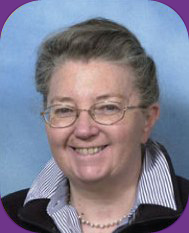Introduction

Hi, I’m Professor Rosalie David.
I’m Professor of Biomedical Egyptology at The University of Manchester. My work includes research and lecturing. I lead a team, “The Manchester Mummy Project”, which uses scientific methods to examine Egyptian mummies so that we can discover as much as possible about disease, diet and religious and burial customs in ancient Egypt. Manchester is the only place in the world where you can take a university degree in “Mummy Studies”. We work at a centre in the University where there are laboratories specially equipped for studying the mummies. There is also an Ancient Egyptian Mummy Tissue Bank that holds hundreds of small pieces of tissue from Egyptian mummies in collections around the world, outside of Egypt. We work on these tissue fragments, and also loan them out to other scientists working in this area. When I was six years old, our teacher showed us some pictures of Egyptian pyramids, and I decided then that I wanted to be an Egyptologist! Later, I studied Latin and Greek at school, as well as modern languages and history. I have worked at the University of Manchester for many years, first in The Manchester Museum, which has one of the best Egyptology collections in Britain, and then, in 2000, I became the first female professor of Egyptology in this country. A couple of years later, I was given an honour (OBE) for my work in Egyptology, and I went to Buckingham Palace to receive the medal from Her Majesty The Queen.
Our research adds new information to Egyptology. Most other Egyptologists study language, art, archaeology or history, but these do not always give a clear or correct idea of what life was like in ancient Egypt. Scientific studies of mummies are exciting because sometimes they give us new facts about ancient Egypt. Some of the questions we ask are:
“What illnesses did the Egyptians suffer from?”
“Can we trace some diseases through from ancient to modern times?”
“What medical treatments did the Egyptians use, and would they work today?”
“How did the Egyptians mummify their dead?”
“Can we use science to trace family connections in ancient Egypt?”
I have written books about our work some specially for young readers, and our team has appeared in television films. The Manchester Museum has a wonderful Egyptology collection, including 17 human mummies, and I have put this section together with Susan Bulleid who works at the Museum.
We hope you enjoy learning about Egyptology with us…..